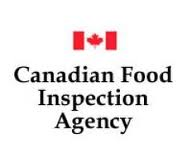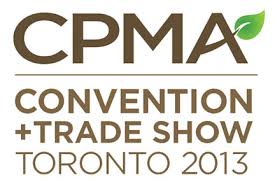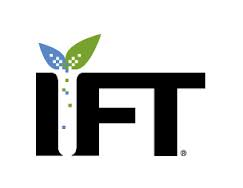 In April of 2013, Nicholas Kluge wrote an article titled: Government Liability for an Unnecessary Product Recall This article analyzed the recent decision of Los Angeles Salad Co. v. Canadian Food Inspection Agency, 2013 BCCA 34, which is a British Columbia Court of Appeals case. In this case, “the Court of Appeal addressed the issue of liability – or lack thereof – on the part of a Canadian government regulatory for damages arising out of negligent performance of its duties where the performance of those duties led to a recall of the plaintiff’s product.” Id.
In April of 2013, Nicholas Kluge wrote an article titled: Government Liability for an Unnecessary Product Recall This article analyzed the recent decision of Los Angeles Salad Co. v. Canadian Food Inspection Agency, 2013 BCCA 34, which is a British Columbia Court of Appeals case. In this case, “the Court of Appeal addressed the issue of liability – or lack thereof – on the part of a Canadian government regulatory for damages arising out of negligent performance of its duties where the performance of those duties led to a recall of the plaintiff’s product.” Id.
The plaintiff, Los Angeles Salad Co., supplied carrots to Costco outlets in the United States and Canada. According to the statement of claim, in 2007, the Canadian Food Inspection Agency (CFIA), the Canadian government regulator empowered to enforce food safety legislation in Canada, received reports from four consumers of the carrots who had contracted shigellosis, a potentially fatal illness caused by consumption of food contaminated with shigella bacteria. The CFIA, assisted by the Public Health Agency of Canada and Health Canada, inspected the carrots. The inspection was allegedly conducted negligently, and the CFIA informed Los Angeles Salad, Costco, the U.S. Food and Drug Administration and the public that the carrots might be contaminated with shigella bacteria, and advised the public not to consume them. As a result of this information, Costco recalled the carrots from its retail stores in Canada, and Los Angeles Salad voluntarily recalled its carrots from retail stores in the United States. The recalled carrots were destroyed, along with carrots in inventory and “in the ground.” It was ultimately determined that the carrots were in fact not contaminated with shigella bacteria and had not been the source of the shigellosis outbreak.
Los Angeles Salad sued the CFIA, alleging that the CFIA’s negligence in identifying its products as the source of the shigellosis outbreak was the proximate cause of economic losses suffered as a result of the recall and destruction of its carrots. The CFIA brought an application to strike out the action on the basis that the CFIA owed no private law duty of care to the plaintiffs.
The trial-level British Columbia court agreed with the CFIA and dismissed the action. Los Angeles Salad appealed the decision to the British Columbia Court of Appeal. In a decision released January 29, 2013, the Court of Appeal upheld the trial-level ruling, finding that under Canadian law there exists no private law duty of care owed by the CFIA to food sellers and similarly placed entities, as if such a duty were to be recognized, it would put the CFIA and other government regulatory bodies in the untenable position of having to balance public interests — ensuring food and product safety in the Canadian marketplace — with the private interests of commercial actors, which could produce a chilling effect on the proper performance of governmental duties. Id.
Interestingly, the Canadian Court of Appeals decision in Angeles Salad Co. v. Canadian Food Inspection Agency, 2013 BCCA 34 is consistent with similar cases in the United States. A review of relevant U.S. case-law shows, almost without exception, that no private cause of action exists for a violation of governmental duties owed to the public. The exception to this general rule is often found where the statute or ordinance imposes such a duty. Accordingly, it is safe to say that the general rule is that a private party – even when actually harmed – cannot maintain a civil action against a governmental agency for negligence in either the U.S. or Canada.
What does this mean for the food industry? As former president Ronald Regan said, “trust, but verify.” A food company would be well advised to maintain command and control over its food safety program and any government inspection of its products and facilities. Do not be afraid to get a second opinion from an independent laboratory and to challenge the government’s findings if a discrepancy is found. After all, this is why both the FDA and the USDA provide the industry with due process rights. Knowing what they are and how and when to use them may protect your company serious damage to its reputation, customer relations and back account.




 As reported by Food Safety News on April 11, 2013, the Obama administration is “seeking a significant increase in funding at the U.S. Food and Drug Administration to help the agency implement the monumental Food Safety Modernization Act.”
As reported by Food Safety News on April 11, 2013, the Obama administration is “seeking a significant increase in funding at the U.S. Food and Drug Administration to help the agency implement the monumental Food Safety Modernization Act.”  On April 11, 2013, United Fresh Produce Association, on behalf of almost 90 separate produce industry groups, formally petitioned the FDA to enlarge the May 16, 2013 deadline for submitting industry comments to the proposed Produce Safety and Preventative Controls Rules under FSMA. United Fresh’s request for more time is “necessitated by the complex and substantial changes proposed for the fresh and fresh-cut produce industry by these proposed rules.”
On April 11, 2013, United Fresh Produce Association, on behalf of almost 90 separate produce industry groups, formally petitioned the FDA to enlarge the May 16, 2013 deadline for submitting industry comments to the proposed Produce Safety and Preventative Controls Rules under FSMA. United Fresh’s request for more time is “necessitated by the complex and substantial changes proposed for the fresh and fresh-cut produce industry by these proposed rules.”  Nothing is more important to a produce company’s cash flow than ensuring the creditworthiness of its customers. This statement begs the question:
Nothing is more important to a produce company’s cash flow than ensuring the creditworthiness of its customers. This statement begs the question: On April 2, 2013, the FDA issued a Notice extending the comment period on the Institute of Food Technologists’ findings and recommendations to the FDA for the improvement of tracking and tracing food under FSMA. The new deadline to submit comments on the IFT’s report is
On April 2, 2013, the FDA issued a Notice extending the comment period on the Institute of Food Technologists’ findings and recommendations to the FDA for the improvement of tracking and tracing food under FSMA. The new deadline to submit comments on the IFT’s report is